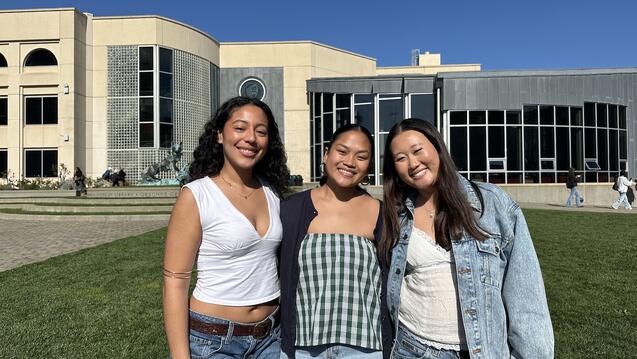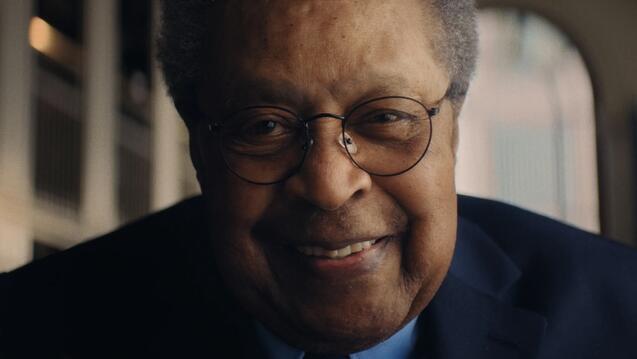Quiz Master

How would you answer this Jeopardy clue?
“A song by Coolio from ‘Dangerous Minds’ goes back in time to become a 1667 John Milton classic.” The correct answer is, “What is Gangsta’s Paradise Lost.” But if, like the real-life contestant who received the clue, you answer “What is Gangster’s Paradise Lost,” you’re out of luck — and money. “Gangster” vs. “gangsta,” is it a deal breaker? It’s Eli Wagner’s job to help make rulings on Jeopardy conundrums like this one, as well as to ensure fairness throughout the game.
Just roll with it
Wagner is the director of standards and practices at Sullivan Compliance, working on the sets of quiz shows such as Jeopardy and Wheel of Fortune. Her work ranges from creating release agreements to prepping contestants for taping to making tough decisions on game show ethics. Her USF Law education, she says, helped prepare her for all the aspects of her job.
“I remember during the moot court in our first semester of law school, where we all had to pitch our arguments to judges and lawyers,” she says. “That training comes in handy when part of your job involves public speaking.” Working for a quiz show can sometimes be a puzzle in itself — and that’s part of why she loves her work so much. “Every day a new situation takes place that you just have to roll with,” Wagner says.
For example, in the midst of the pandemic, one question is how to ensure fairness in online tryouts. In a game like Jeopardy, which relies on speed to the buzzer, a lagging internet connection could spell doom. So Wagner and the staff have to create innovative ways to still allow potential contestants to have a fair opportunity when auditioning against thousands of other potential contestants. “Eli is an essential presence on our sets and ensures the games are played fairly,” says Harry Friedman, who served as executive producer of both Jeopardy and Wheel of Fortune for more than 20 years before his recent retirement.
Make your own luck
At USF, Wagner specialized in intellectual property law, and was managing editor of the Intellectual Property and Technology Law Journal. Her most memorable class was Entertainment and Media Law, in which the very first assignment was to watch the Oscar-nominated film Quiz Show. The film details a series of scandals in the 1950s in which game show outcomes were fixed.
“Had those scandals not taken place, I most likely wouldn’t have the job I have today,” says Wagner.
After graduation, Wagner returned home to Los Angeles where she spent a few years working as a contractor for several law firms, including a civil litigation firm. She also volunteered at the nonprofit Bet Tzedek, working on wage and hour claims for undocumented immigrants. Soon, she started reaching out to friends and family to see if she could find a connection to the entertainment world. A friend of a friend put her in touch with the man who would eventually become her manager. Things didn’t work out right away, though.
“He kept telling me, ‘I don’t have anything for you,’” Wagner says. “But I was just persistent.” Nearly a year later, her connection offered her a two-week contract job that was an hour-and-a-half from where Wagner lived. She took it. That job led to another, which led to another, which eventually led to her current role.
“The biggest takeaway that I really want to hammer home is that you are in charge of your own destiny,” Wagner says. “You’ve got to make the most of the opportunities you have. If you don’t have any opportunities, go make yourself some.”


